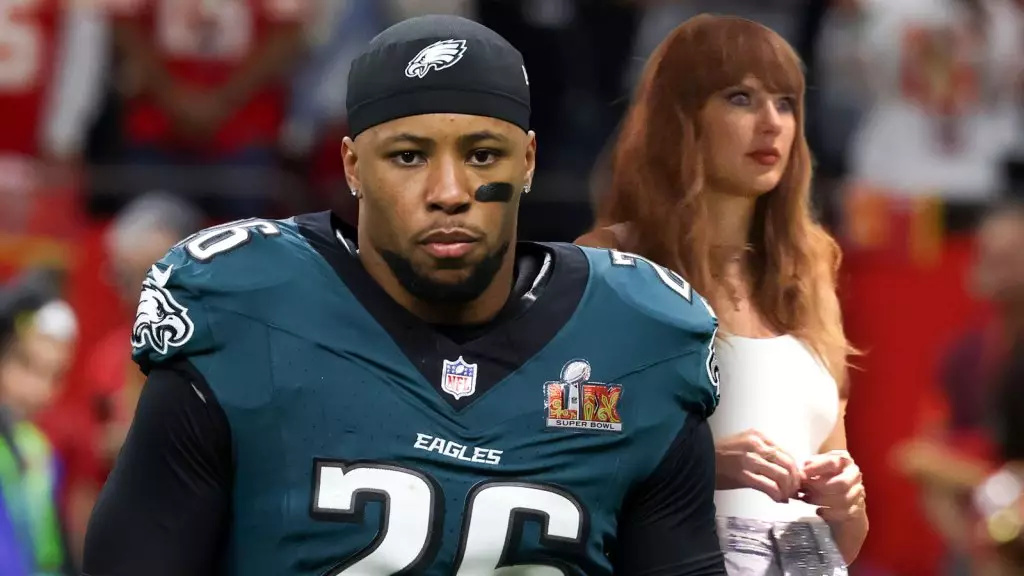The Philadelphia Eagles boast one of the most intense and devoted fan bases in the NFL. When their team is in the spotlight, expectations, pride, and emotions run high. Recently, these emotions were misplaced during the Super Bowl when singer Taylor Swift was booed after being shown on the Jumbotron. This phenomenon raises questions about fandom, the nature of celebrity, and the implications of turning a sporting event into a platform for personal expression.
Saquon Barkley, the talented running back for the New York Giants, weighed in on the incident, arguing against the hostility directed toward Swift. His remarks on The Howard Stern Show illuminated a perspective that suggests Swift’s presence at the game should be celebrated rather than vilified. According to Barkley, Swift’s involvement in the NFL serves a broader purpose, contributing to the expansion of the sport’s audience and reach. This defense highlights not only the nature of fandom but also the intricate relationship between sports and popular culture.
Barkley emphasized the positive impact that Swift has had on the NFL, noting that her presence helps to elevate the sport’s profile and appeal to a more diverse audience. In an era when the NFL is actively seeking to engage with international markets, Swift symbolizes a bridge to those audiences. Her music and fan base transcend traditional boundaries, making her involvement beneficial, especially as the league explores new territories. While her connection to Travis Kelce certainly adds a layer of intrigue, it opens the door for discussions about who can bring attention to the sport and how.
However, the booing incident garnered attention not just from sports enthusiasts but also from political figures. Donald Trump, in a typical move that blends celebrity culture with political commentary, took to social media to express his disdain for Swift’s treatment and claimed that she had a “tough night” at the Super Bowl. Trump’s analysis introduces a competitive edge to the conversation—juxtaposing fan reactions with political affiliations. Swift’s endorsement of Kamala Harris seemed to position her not just as a music icon but as a figure representing a specific ideological viewpoint that resonated with certain audiences, raising the stakes of public opinion within this sports context.
What transpires during controversial moments like this reflects the evolving nature of celebrity within the realm of sports. The interplay between fans, celebrities, and athletes illustrates that matters of loyalty often extend beyond team colors. As Barkley lamented the treatment of Swift, he inadvertently drew attention to the pressures tied to fandom that can spill over into aggression—an unsettling reminder of how public figures can elicit unexpected reactions. Ultimately, while passionate fan bases shape the identity of sports, there is a pressing need to consider the role of respect and acceptance within this dynamic.
This incident brings forth essential discussions about how celebrity culture can influence sport and vice versa, urging fans and observers alike to examine the complexities surrounding the interactions we witness. Whether celebrating or booing, the key takeaway is that every action taken in the arena echoes far beyond the game itself, influencing perceptions and relationships within our ever-entwined worlds of sports and arts.
